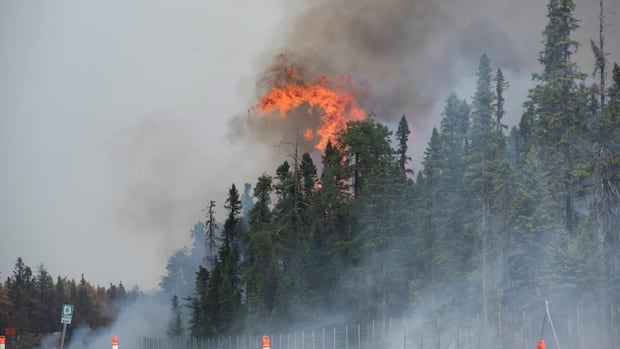This summer’s hot, dry weather and wildfires may just be a preview of what is to come.
Climate scientists say that warming temperatures driven by human activity are going to make the conditions that came together this month more and more likely to recur in future decades.
“The public can expect to see more instances like this, more summers where you have these more frequent heat waves, longer heat waves,” said Anthony Taylor, a professor of forest ecology at the University of New Brunswick.
“If you combine that with a period when there just happens to be less precipitation, then you’re going to have a higher frequency of really conducive fire weather.”
Taylor said temperatures are already two degrees Celsius higher than the average in the 20th century, and are expected to rise by another 1.5 to two degrees by 2050.
WATCH | ‘We will see an increase in fire activity’: Summers like this more likely, scientists say: 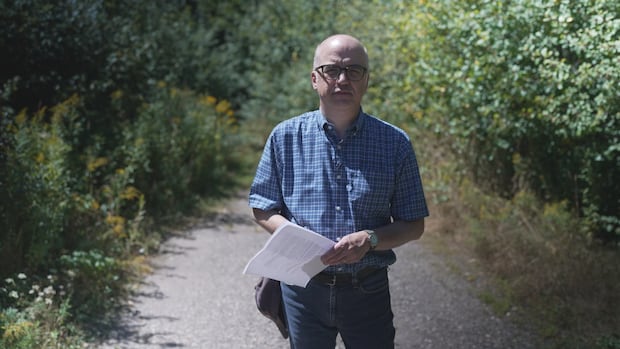
Climate trends make N.B. fires a possible sign of more to come
Scientists say warming weather plus unusually low precipitation create perfect conditions for fires.
Scientists remain cautious about saying any one specific event, such as a single fire, was caused by climate change.
What they are confident about is that existing, observable trends, such as higher temperatures, will create the right conditions for such fires more frequently.
“We cannot say climate change caused such an event, but climate change could certainly increase the odds of having something like what we have seen in New Brunswick,” said Yan Boulanger, a research scientist with Natural Resources Canada based in Quebec City.
Boulanger is a co-author of two studies that concluded that climate change made the Canadian wildfires of 2023 more likely, and made the length of the fire season, and the sizes of the areas burned, more likely.
“With continued warming, the likelihood of extreme fire seasons is projected to increase further in the future, driving additional impacts on health, society, and ecosystems,” one of the studies said.
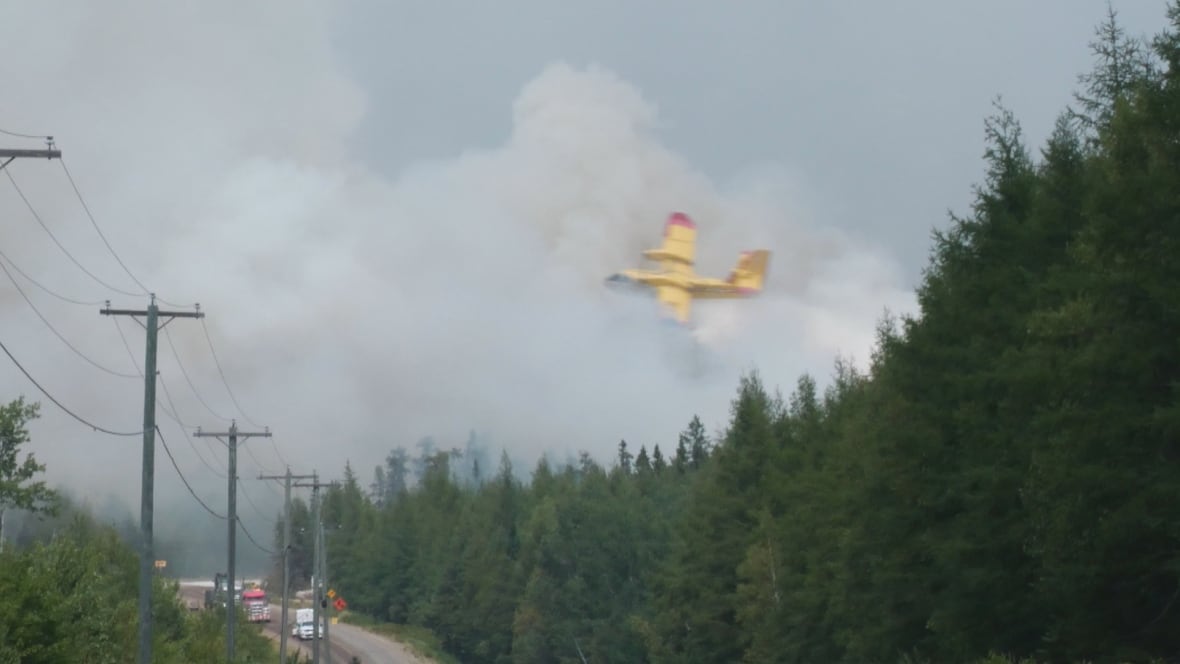 Low-flying water bombers could become a less rare sight for New Brunswickers. Last Thursday, this water bomber dropped its load on the Oldfield Road fire in the Miramichi area. (Government of New Brunswick)
Low-flying water bombers could become a less rare sight for New Brunswickers. Last Thursday, this water bomber dropped its load on the Oldfield Road fire in the Miramichi area. (Government of New Brunswick)
Boulanger’s models project that areas burned by fires in the Maritimes will be 1.5 to three times larger by 2100.
Temperature is the key factor.
The Climate Shift Index, a peer-reviewed interactive data website maintained by climate scientists, shows that temperatures in Miramichi — the scene of the largest fire in the province — were 7.2 degrees warmer than average from Aug. 11 to 14.
In Moncton, temperatures were 5.8 degrees warmer than average.
The CBC’s Climate Dashboard, which is based on data from the Meteorological Service of Canada, shows that Moncton had 11 days of temperature highs above 30 degrees as of Aug. 15, eight more than average.
The other factor this year was precipitation.
Taylor and Boulanger said that in general, climate change is causing more precipitation.
Normally, a lot of snow over the winter and rain in the summer will keep the ground wet enough to offset the impact of extreme heat.
But precipitation fluctuates every year, and when amounts are low, dry ground and dry trees can combine with increasing heat to make fires more likely.
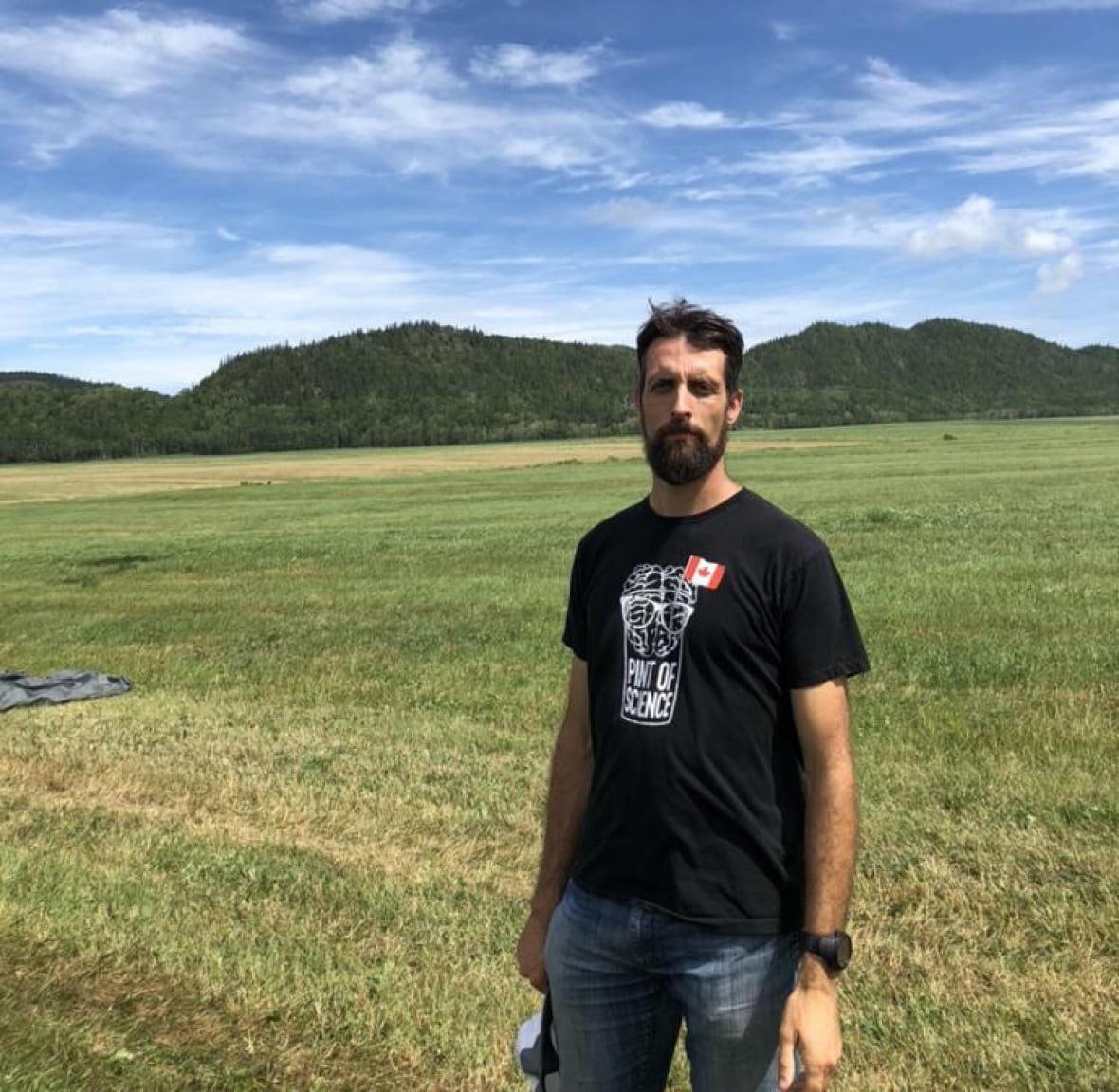 Yan Boulanger, a research scientist with Natural Resources Canada, says scientists are cautious about saying a specific event such as a wildfire is the result of climate change. (Submitted: Jean-Sébastien Roy)
Yan Boulanger, a research scientist with Natural Resources Canada, says scientists are cautious about saying a specific event such as a wildfire is the result of climate change. (Submitted: Jean-Sébastien Roy)
Boulanger said that in the years to come, this offset will become less frequent.
“In the future, even though we are projecting that precipitation will steadily increase in the eastern part of the country, the increase in temperature will be much more,” he said..
“Precipitation at some point won’t be able to cancel out the increase in temperature, so we will see an increase in fire activity in the Maritimes.”
Moncton had received 53 millimetres of rain in 2025 as of Aug. 15, compared to 137 millimetres in an average year.
Taylor said the probability of fire is expected to increase by two or three times by 2100.
“That’s not to say that it’s going to happen, but it’s just that the probability of it happening is increasing because the conditions are there now with climate change,” he said.
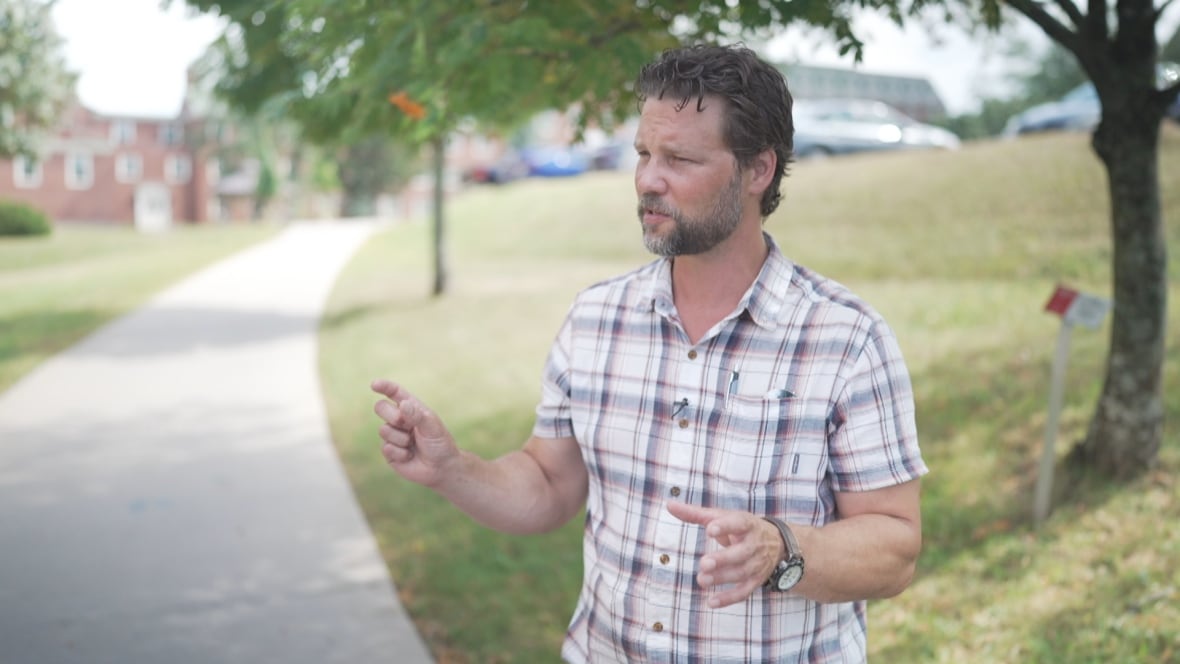 Anthony Taylor, a professor of forest ecology at the University of New Brunswick, says it’s likely wildfires will be increasing in the future. (Aniekan Etuhube/CBC)
Anthony Taylor, a professor of forest ecology at the University of New Brunswick, says it’s likely wildfires will be increasing in the future. (Aniekan Etuhube/CBC)
Boulanger said there are also projections that the areas that will burn will be two to three times larger.
Premier Susan Holt said this week that her government recognizes that the climate is changing and that extreme heat and fires may become more frequent.
She said the province is learning lessons this summer about adapting to hotter, drier conditions and is working on ways to adapt.
“What do we need to do when we build, when we build communities, to make sure that they are resilient, and sustainable, and that we’re building the kind of province that can live into the future?” she said.
Natural Resources Minister John Herron said people who live in or near the woods should trim trees back to prevent fire from jumping to homes.
“If those trees are touching your house, that’s not necessarily the best situation from a maintenance perspective,” he said.
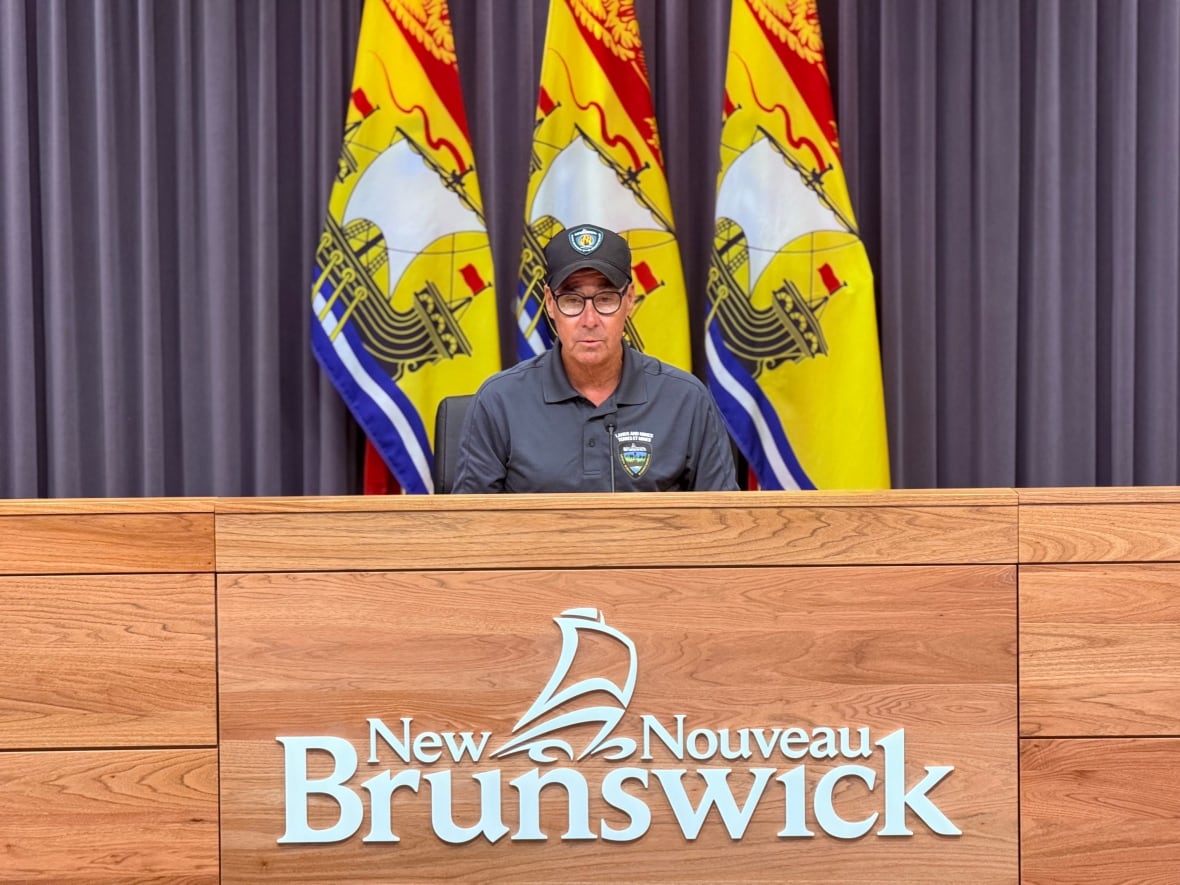 Natural Resources Minister John Herron has recommended preventative measures to New Brunswickers as fires continue to burn. He said residents with homes near the woods should trim trees to help contain possible fires. (Chad Ingraham/CBC)
Natural Resources Minister John Herron has recommended preventative measures to New Brunswickers as fires continue to burn. He said residents with homes near the woods should trim trees to help contain possible fires. (Chad Ingraham/CBC)
Holt and Herron have also been promoting several large energy projects, including at least one, a natural gas pipeline extension, that would emit more climate-warning greenhouse gases into the atmosphere.
The premier promised last year to implement a more “robust” provincial carbon pricing system on large industrial polluters to push emissions down.
She did not mention that or the idea of emissions reductions in general when asked last week about the link between climate change and this summer’s fires.
“It’s unfortunate that it takes these events to bring climate change to the forefront of the news cycle,” Taylor said. “It’s easy to forget about this when the fall comes and things wetten up.
“While it may be an inconvenience to try to combat climate change, whether that’s using less fossil fuels and that sort of thing, I’d say in the long run it’s more of an inconvenience to deal with bigger fire seasons, more floods and just heat waves in general.”

